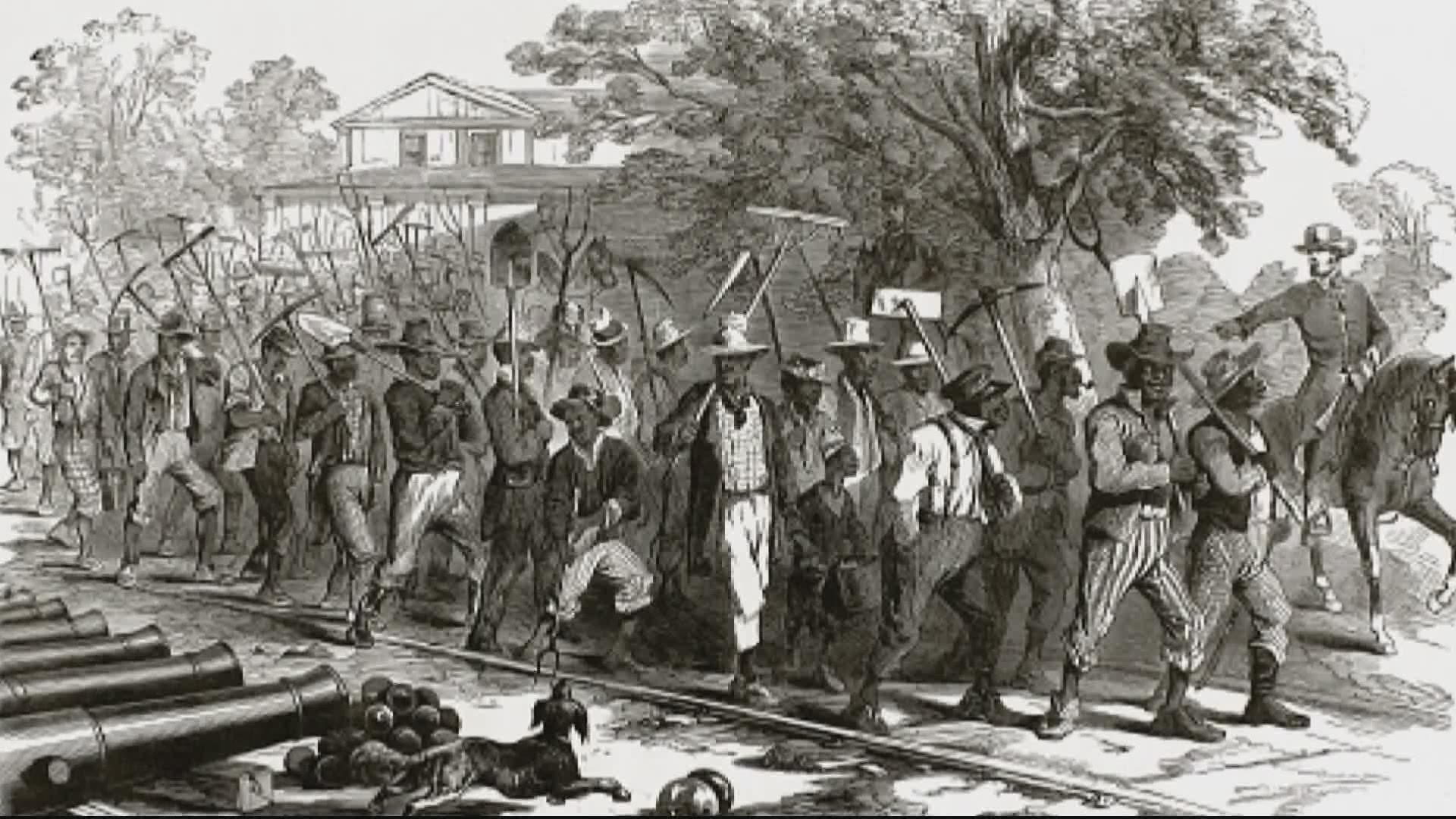WASHINGTON — The official handwritten record of General Order No. 3, the document that informed the people of Texas that all who were enslaved were free, is now preserved at the National Archives Building.
The word Juneteenth is a combination of the month and date that the holiday is observed, on June 19. On that day in 1865, Union troops led by Maj. Gen. Gordon Granger arrived in Galveston, Texas, with news that the Civil War was over, and that all remaining slaves were free.
Lincoln announced the Emancipation Proclamation that had declared their freedom in September 1862. The order was issued during the Civil War and effective Jan. 1, 1863.
General Order No. 3 states:
“The people of Texas are informed that, in accordance with a proclamation from the Executive of the United States, all slaves are free. This involves an absolute equality of personal rights and rights of property between former masters and slaves, and the connection heretofore existing between them becomes that between employer and hired labor. The freedmen are advised to remain quietly at their present homes and work for wages. They are informed that they will not be allowed to collect at military posts and that they will not be supported in idleness either there or elsewhere.”
While the order was critical to expanding freedom to enslaved people, the racist language used in the last sentences foreshadowed that the fight for equal rights was nowhere near over.
“The National Archives safeguards many of the nation's most important records related to African American history and civil rights, and General Order Number 3 is one of those records,” Archivist of the United States David S. Ferriero said. "We know from history that certain events took place, and it's always a delight when we can help make history come alive by sharing the actual documentation of those events.”
The document will be officially digitized and added to the National Archives Catalog, as well as highlighted on NARA’s African American History page, according to National Archives officials.
“This is a perfect time to showcase General Order No. 3 because it’s one way of educating everyone on African American culture, and I believe it supports the National Archives’ overall goal to create and sustain an inclusive, empowering workplace culture that connects employees to the agency’s mission of making access happen,” Erica Pearson, Director of the Office of EEO program at the National Archives said.
Dozens of planned demonstrations throughout D.C. come in the wake of four weeks of protest over police brutality and George Floyd's killing. Those coming to rally will mix the joy of the holiday with the passion for change.

